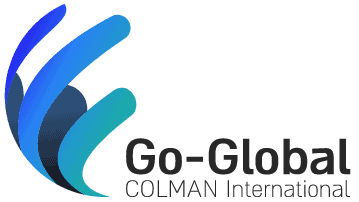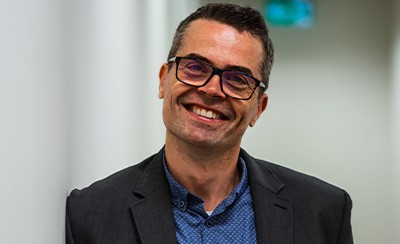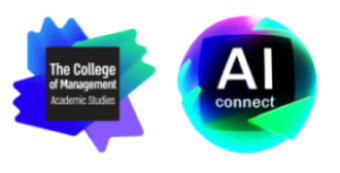GO-GLOBAL: AN INTERNATIONAL SPECIALIZATION

Knowledge and Skills to compete in the global job market
GO-Global allows students to take electives in English that give them global skills and perspectives in a variety of disciplines and to fulfill their advanced English requirements.
All courses in GO-Global are taught in English by a team of international faculty and professionals at the top of their fields.
GO-Global students will have the tools, knowledge, confidence, and skills to take on positions that require an international perspective, apply for jobs in multi-national companies or consider establishing their own global entrepreneurial ventures.
This course aims to introduce students to the challenges that startup founders and managers experience when facing the tasks of defining and explaining their innovative ideas and the ways they intend to monetize them. The course will focus on the Lean Canvas Model – an actionable and entrepreneur-focused business plan, that deals with problems, solutions, key metrics, and competitive advantages. Different aspects of the Lean Canvas Model will guide us through the most relevant challenges. Working in groups, the students will implement their newly acquired knowledge using an existing (or imaginary) innovative idea and create a Lean Canvas Model for it.
Lecturer – Mr. Daniel Tjoernelund
Course dates and time: Wednesday 18:00-19:30
The course delves into the psychological foundations of political phenomena in a global context. Students will analyze the psychological factors that shape political ideologies, public opinion, decision-making processes, and leadership dynamics across diverse international settings. Through this course, students will develop a nuanced understanding of how psychology intertwines with politics, influencing individuals and societies on the world stage.
Lecturer – Mr. Gil Hoffman
Course dates and time: Thursday 16:00-17:30
This course aims to provide the students with the concepts, methods, and tools surrounding technology-based innovation. The course equips the students with relevant knowledge and experience on how to conduct an innovation process starting with identifying and exploring a problem, brainstorming for a relevant solution based on modern technologies, and developing the solution concept.
The course begins by providing a deep overview of modern and emerging technologies – Big Data, AI (Artificial Intelligence), ML (Machine Learning), DL (Deep Learning), VR (Virtual Reality), AR (Augmented Reality), MR (Mixed Reality), among others. This overview will combine knowledge and understating together with active discussions on various issues related to the adoption, implementation, and assimilation as well as the economic and social implications of these technologies. Throughout the course, students will explore the design thinking innovation process to solve real-world problems and the steps of creative problem-solving practice. The course utilizes academic articles, case studies, success and failure stories, videos, discussions, and teamwork as the main pedagogical tools to present and analyze content.
Lecturer – Dr. Itamar Shabtai
Course dates and time: Asynchronized Model
This is an introductory labor economics course, which aims to discuss models for behavior, incorporating labor supply (by workers) and labor demand (by firms). The students will investigate concepts of how wages are determined, how to measure employment and unemployment, what causes unemployment, whether, and how, immigration affects the domestic labor market, who the losers and winners from immigration are, evidence and measurement of labor market discrimination and the effectiveness of governmental policies, such as minimum wage and affirmative action rulings. Throughout the course, students will explore the interaction of labor supply and demand to understand the market process of wage and employment determination, analyze the effect of labor market imperfections and government policies on wages and employment (the incentive to work) and learn to combine formal behavioral models with empirical evidence to explain various labor market phenomena. Students should be very comfortable with basic high-school algebra, working with graphs, plotting equations, working with unknowns, solving simple equations. Knowledge of basic calculus is a plus.
Lecturer – Prof. Muhammad Asali
Course dates and time: Wednesday 16:00 – 17:30
For course registration reach out to the student administration office of your faculty. Registration is open for all students from all degree programs
Testimonials
JOIN THE BUDDY SYSTEM
The Office of International Affairs invites YOU to join the COLMAN Buddy System!
The Buddy System is a community of international and local students who come together to learn, interact, and support one another through informal interaction under the guidance of the International Office and with the support of the Dean of Students.
Benefits of Being a Buddy
- Intercultural Communication Skills
- Multicultural Exposure
- International Experience
- Leadership
- Friendship
- 2 credits or 2,500 NIS Scholarship – in accordance with the policy for social engagement. CLICK HERE for the policy.
Activities
- Weekly Meetups with International Students
- Monthly Cultural Events
- Intercultural Communication Training
- Community & Volunteer Activities
Requirements to apply:
- 2nd year (as of fall semester 2022) and above students.
- Advanced levels of English (the program is entirely in English).
- High motivation and eagerness for intercultural experiences.
- Must be able to commit for the full duration of the program.
Application Process
For more information reach out to the International Office.
STUDY ABROAD
Why Study Abroad?
Studying abroad. A life changing experience.
Studying abroad is a wonderful opportunity for you to learn a new language, delve into a different culture, and experience personal growth and independence. Today, studying abroad is more important than ever. Studying abroad can significantly enhance your employability after college.

According to Dr. Uwe Brandenburg, the lead researcher of the the Erasmus Impact Study and partner of COLMAN in project WILLIAM, “We know from the Erasmus Impact Study 2014 and 2016 that studying abroad substantially affects the likeliness of students to later take up more responsible jobs, increase the likelihood of better employable and develop personality traits that are favourable for higher level careers.”
According to the GS Global Employer Survey Report, which surveyed how employers across countries value an international study experience, “regardless of where a student is located, it is a safe bet that he or she will enhance their employability prospects through participation in international education.” This study is the most comprehensive on the topic and reinforces the importance of an international education regardless of what discipline you are in.
Why is studying abroad such a great resume builder?
In today’s increasingly global and interconnected economy, some of the top skills that employers are looking for are intercultural competences, problem solving, creativity and English fluency. Studying abroad is a great way to develop these skills.

While gaining intercultural competencies and English fluency may be an obvious benefit of time abroad, it turns out that being in an environment different from one’s one culture allows one to practice seeing things from different viewpoints, a skill tied to enhanced mental flexibility and creativity. Moreover, people who spend significant time in a different country may learn to be more resourceful and proactive as they navigate the new cultural settings. These are all important skills that employers highly value. To read more about how international experiences are tied to enhanced creativity and career success, see this article.
We strongly encourage you to take advantage of the study abroad opportunities that COLMAN offers, both for the benefit of your personal growth and career development.
Check out our new Global Studies and Skills Specialization. This specialization help prepare you for a semester or summer abroad and connect you with potential international internships.
Semester Abroad Programs

COLMAN offers you a number of opportunities around the world to study abroad for a semester.
Students interested in participating in a semester abroad can enroll in one of the partner institutions with which COLMAN holds an exchange student agreement. During this time, tuition fees at the host institution are waived and students maintain their full-time enrollment status at COLMAN, continuing to pay tuition and fees. List of partner institutions.
Alternatively, students can study abroad through the Erasmus+ program of the European Commission. The aim of this program is to encourage the exchange of students between EU countries and countries around the world. Students who are accepted into this program receive a scholarship from the Education, Audiovisual and Culture Executive Agency (EACEA) of the EU. The scholarship covers flight and living stipend for the duration of their studies.
If you are interested in a semester abroad, contact your academic advisor and/or the Office of International Academic Affairs for more information.
Short Term Programs

Depending on your school and degree program, there are various options of short term courses offered each year. These are typically summer courses at a host institution with which the school has a joint program. Between 20-30 students travel together and are joined by COLMAN faculty.
For more information on this option, contact your department/school directly.
Volunteer Abroad

UNDER CONSTRUCTION
GUIDELINES AND PROCEDURES FOR EXCHANGE
Studying abroad is an excellent opportunity for students to enhance their language skills, learn about different cultures, and develop independence. In today’s globalized world, studying abroad can significantly enhance students’ employability after their studies, given the intercultural competencies, problem-solving, creativity, and English fluency that are top skills sought by employers.
The student exchange program is an opportunity for students to experience studying at one of the universities and colleges around the world that are COLMAN partners while living in a different country.
BA students must have completed at a minimum a full year of study at COLMAN before participating in the exchange program.
MA students must have completed at least one semester at COLMAN before participating in the exchange program.
Students must have a minimum GPA of 80 and have reached the level of Advanced English requirement, before the intended exchange.
There are two selection processes each candidate must undergo:
- Be selected by COLMAN to participate in student exchange and to be nominated to a partner institution abroad.
- Be confirmed by the partner institution abroad.
The second process can only start after the first ends. Thus, it is important to complete the first process on time. You are only accepted to study abroad after the second process is completed.
You should start doing research the minute you decide to apply to the student exchange program. This means:
- Refer to the list of Partner Institutions
- Find institutions that are of interest to you.
- Look at their course offerings and write down those that you think are relevant to your studies
- Check other information regarding each of these institutions such as language requirements, academic rigor, and cultural differences.
- Create a list of institutions you would like to go to by priority.
Applications are only accepted through the official international website until March 22, 2025.
In the application, students must submit:
- Formal Letter of Motivation (a formal letter written in English that introduces you and your motivations for studying abroad. The letter should be exactly one page.)
- Headshot photo
- Official copy of your transcripts in English (through the “Mayda-net” by requesting documents)
All applications must be written in English with all information filled in.
All students who apply will be checked for previous disciplinary actions.
Once an applicant has successfully completed and submitted their application, it will be reviewed. Applicants who meet the requirements will be invited for an interview, where they will have the opportunity to further demonstrate their skills and suitability for the program. The interview process is a crucial step in the selection process and provides a chance for the selection committee to get to know the candidate better and assess their fit for the program.
The interview duration will be approximately 20-30 minutes.
Some interviews will take place before the last date for applying. If you applied early, you could enjoy these interview dates.
Applicants who do not show up to their interview without prior notice by email will be removed from the selection process.
Following your interview, you can expect to receive an email within a few days notifying you of your selection status for the program. This does not yet mean that you are guaranteed to actually participate in the program. Actual participation depends on academic approval within COLMAN and the approval of the partner institution.
Candidates must be approved by their relevant school. Under no circumstances will a student be able to participate in student exchange without the explicit permission of their school.
After you are notified you successfully passed the interview, approach the International Representative in your academic unit.
Present to them the institution(s) abroad you would like to go to and the courses you would like to take when studying there. At this point, you need to make sure your unit approves these courses. This is not a final and formal approval yet. That will only be required after you are admitted to the institution abroad. However, you must confirm with your unit that it approves of the courses you intend to take. Otherwise the credits you receive there will not count towards your COLMAN degree.
All courses taken during the semester exchange program will be equivocally converted and recorded on your transcript to our number system 0-100. For example: a grade of 100 abroad is a 100 here, and a failing grade abroad is also a fail grade here.
European Institutions work on an ECTS credit system. 1 Israeli Academic Credit is worth 1.5 ECTS for BA students and 1:2 for MA students. The standard requirement for students is to take 30 ECTS (20 Israeli Credits) unless otherwise instructed by the Faculty Academic Coordinator
After you have the approval of your unit for the courses you intend to take abroad, inform the International Office.
While we try to avoid this, in some cases the International Unit itself will limit the range of institutions you may choose to go to, because of limits on the number of students we can send to each institution and the relevance of certain academic units to those institutions.
Upon completion of the application, interview, and faculty approval, candidates will be nominated to the selected partner institution through the international office.
Although rare, participating institutions have the right to refuse our students based on their own internal criteria outlined in the agreement between our institutions.
During the nomination process, students are required to comply with the nomination process of the participating institution. This process varies in length and requires several documents from the candidate.
At this stage, a “Learning Agreement” (official contract) will be presented with the final list of courses that the candidate has chosen. This must be signed by the school representative.
Upon completion of all the phases, the accepted student will receive a Letter of Acceptance from the participating institution.
Only the letter of acceptance officially confirms the participation and acceptance into the program.
For more information reach out to;
Mr. Shimon Packer, Manager of International Programs at: ShimonPa@hdq.colman.ac.il,
or Ms. Samara Nadler Segal, Manager of Development and Project at Samarase@colman.ac.il.
Phone: 03-9634161
Faculty | Faculty International Representative | Email: |
Law | Dr. Roy Peled | |
Business | Dr. Odelia Rosin | |
Economics | Dr. Dalit Gafni | |
Media Studies | Dr. Alina Bernstein | |
Computer Science | Dr. Galit Haim | |
Design | Arc. Tali Cohen Anderson | |
Education | Dr. Ella Sarel-Mahlev | |
Psychology | Dr. Refael Yonatan-Leus | |
Behavioral Science | Dr. Irit Chudner |
Academic Recognition:
Upon the student’s return, academic recognition for completed courses during the mobility period will be assigned at COLMAN based on equivalence of the ETCS system. The transfer of credit should be known and anticipated by both the student and the administrative staff in light of the communication about courses conducted before departure.
Follow up Questionnaire/meeting:
Students who participate in the exchange program are asked to complete an assessment questionnaire upon their return. Students may also be asked to participate in a follow-up meeting with the Exchange Coordinator at the International Office. This feedback is critical both to improving the process and gaining insights that can assist future students during their stay at that particular partner institution.
SCHOLARSHIPS & FINANCIAL AID
Erasmus+ ICM Scholarship
Erasmus+ scholarships for students cover tuition, flight, and minimal cost of stay during the exchange. For general information, see this link to the Israel Nation Office of Erasmus+.
COLMAN students who are interested in studying abroad for a semester exchange at relevant partner institution can apply for the Erasmus+ ICM scholarship, if relevant. Availability of the scholarship depends on the existing agreements with partner institutions and is decided on by the school the student is enrolled in.
If you are a COLMAN student interested in studying on an Erasmus+ scholarship, contact the Office of International Academic Affairs. We will work with you to identify the availability of this option with your school.
Financial Aid
Financial aid for a semester abroad at a partner institution may be offered through COLMAN, pending availability during that school year. Students that apply for this financial aid must have a GPA of 85 or above and go through an application process through the Office of International Academic Affairs.
Financial aid for short-term summer programs should be discussed with the student’s school directly to see if the option is available.

